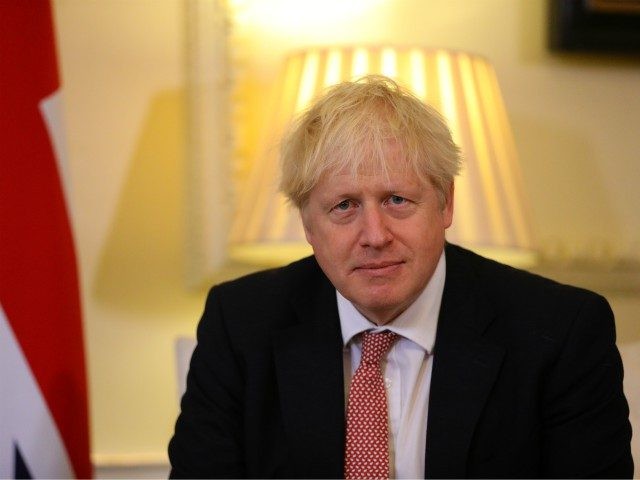Prime Minister Boris Johnson will have his Brexit resolve tested this week, with his October 15th crunch deadline set to result in either a deal, no deal, or another soft deadline extension.
The UK officially left the EU on January 31st, 2020, but remains in a transition period and tied to EU rules until the end of this year. If the UK does not agree on a new trading relationship with the EU by then, it will trade with the bloc on World Trade Organization (WTO) terms from January 1st, 2021. However, the real deadline is much closer, as any potential deal would have to be ratified by EU member states and other bodies.
With talks at an impasse for several months over issues like fishing and regulatory alignment, Prime Minister Johnson said last month that if an agreement is not made by October 15th — the date of the next European summit — “then I do not see that there will be a free trade agreement between us, and we should both accept that and move on”.
“So there is no sense in thinking about timelines that go beyond that point,” he said.
Following a high-level telephone conversation between the prime minister and European Commission President Ursula von der Leyen at the beginning of October, however, reports suggested that Mr Johnson had quietly moved that deadline back another month. Other sources said at the time that Johnson was pushing the October 15th deadline with the Commission president.
In a telephone call between Mr Johnson and hardliner Emmanuel Macron on Saturday, the prime minister had told the French president that a deal would have to be made “in the coming days” — signalling that Number 10 remains committed to the October 15th deadline.
“The Prime Minister emphasised that progress must be made in the coming days to bridge the significant gaps, notably in the areas of fisheries and the level playing field, through the process of intensive talks between Chief Negotiators,” a Downing Street spokesman said.
Boris May Submit to European Court of Human Rights for EU Deal https://t.co/Vz7p9HAxhl
— Breitbart London (@BreitbartLondon) October 9, 2020
However, there is already precedent for Mr Johnson breaking soft Brexit deadlines. The Guardian reported in February a government document which said that if a “broad outline of an agreement” is not “clear” by June, then the government would consider moving away from the negotiation strategy and towards an exit strategy in preparation for a WTO/’Australia’ arrangement by the New Year. Despite little progress being made in the summer months, that deadline passed and the stalemate continued.
There were also three Brexit deadlines last year, with the original Brexit day moved from March 29th, 2019, to October 31st, 2019, after former Prime Minister Theresa May failed to pass her version of the withdrawal agreement. The then-Remainer dominated House of Commons forced the new prime minister, Boris Johnson, into another delay to January 31st, 2020.
Mr Johnson has maintained that he will not delay the transition period, and said in his telephone call with Mr Macron that while he wanted a deal, he would not accept one at any price and was ready to leave the bloc without one. His spokesman said: “He underlined that a deal was better for both sides, but also that the UK was prepared to end the transition period on Australia-style terms if an agreement could not be found.” (‘Australia-style’ refers to no trade deal, but where individual agreements are in place to facilitate trade.)
The ‘Landing Zone’ in Sight? Boris Promises Brexit ‘Full Control’ From January First https://t.co/WISNlI9O0z
— Breitbart London (@BreitbartLondon) October 8, 2020
European Union countries are said to be preparing for the “chaos” of no-deal, with a European diplomat telling The Telegraph on Sunday that even if there is not an agreement made in time for January, it does not mean there is no prospect of a deal further down the line. Another said, however, that there would be no resumption of talks. Other sources told the newspaper that even if talks resume after a no-deal, Brussels would still be maintaining the same demands that the UK would not surrender to in the first place.
Earlier this month, Brexit Party leader Nigel Farage predicted that there would be a trade deal agreed in time for the end of the transition period — but that it would include compromises that would fail to satisfy many Brexiteers.
Reports from last week suggested that Prime Minister Johnson was preparing to submit to EU demands that it accepts continued adherence to rulings by the European Court of Human Rights (ECtHR), which upholds the European Convention on Human Rights (ECHR), in exchange for a free trade agreement.
Mr Johnson had, however, promised last week that “this country has not only left the European Union, but on January 1 we will take back full control of our money, our borders, and our laws”.
EU Launches Legal Action Against UK for Breaching Divorce Agreement https://t.co/TC9E72uLFx
— Breitbart London (@BreitbartLondon) October 1, 2020

COMMENTS
Please let us know if you're having issues with commenting.